Dear all,
 Welcome to the September newsletter. The new academic year has already started en we are back in the swing of things. The first DISC course will start in October. As you may have noticed already the DISC courses will mainly take place in the Winter and Spring this year. We would have preferred to balance them out a bit more but mostly we are happy to present a full course program, with old favorites and interesting new additions. Many thanks to our DISC lecturers!
Welcome to the September newsletter. The new academic year has already started en we are back in the swing of things. The first DISC course will start in October. As you may have noticed already the DISC courses will mainly take place in the Winter and Spring this year. We would have preferred to balance them out a bit more but mostly we are happy to present a full course program, with old favorites and interesting new additions. Many thanks to our DISC lecturers!
For all a full year we have been working on our bid for the IFAC World Congress and on September 8 it was time to present the bid in Vienna, Austria. Unfortunately we were not selected and of course this was a great disappointment. But we will now concentrate on other events that are just as important to this community. It is our turn the organize the Benelux Meeting and in 2021 we have the ECC in Rotterdam to look forward to. In the coming year you will be hearing more of that!
Many new people have joined in the past two months and we welcome them to DISC. We wish all of you a productive new year!
With best regards,
Henk Nijmeijer,
scientific director
Martha Otte,
DISC secretariat
In October 2019 the following class will start:

Dr. Sergio Grammatico, Delft University of Technology
Dr. Giulia Giordano, Delft University of Technology
For the full list of courses for 2019-2020 see: https://disc.tudelft.nl/education/course-program/2019-2020-course-program/
Register on the DISC course platform.
The courses are taught at cursus en vergadercentrum Domstad in Utrecht, location Koningsbergerstraat 9. For more information see their website.
As many of you know, DISC, as National Member Organization of IFAC, prepared a bid for the 2026 IFAC World Congress and with that nominated professor Jacquelien Scherpen (RUG) as candidate for IFAC president for the triennium 2023-2026. Our bid was presented on 8 September 2019 in Vienna to the IFAC Council. Though we believe we had an excellent bid, the Council finally selected in a close vote for the Korean bid. Obviously, we feel very disappointed about the outcome, and will certainly discuss this further at a later stage.
For now I wish to thank everyone who helped in setting up our bid, and in particular, Jacquelien Scherpen, Paul van den Hof and Martha Otte for the tremendous work done.
Henk Nijmeijer, scientific director DISC
Henk Nijmeijer has been elected as a fellow of IFAC. This award is given to persons who have made outstanding and extraordinary contributions in the field of interest of IFAC, in the role as an Engineer/Scientist, Technical Leader, or Educator. Henk Nijmeijer will receive the award for contributions to the theory and applications of nonlinear control systems analysis and design. The award will be presented during the IFAC World Congress in Berlin in 2020.
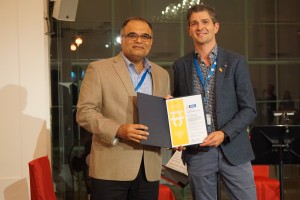 Tom Oomen, Associate Professor from the Control Systems Technology group at the Department of Mechanical Engineering of the TU/e, has received the 2019 TC 4.2 Young Researcher Award. He accepted the award in Vienna, at the IFAC Symposium on Mechatronic Systems.
Tom Oomen, Associate Professor from the Control Systems Technology group at the Department of Mechanical Engineering of the TU/e, has received the 2019 TC 4.2 Young Researcher Award. He accepted the award in Vienna, at the IFAC Symposium on Mechatronic Systems.
Oomen has received this award for advanced motion control for precision mechatronics. In collaboration with his team and a large number of national and international collaborators, he has obtained several major breakthroughs in the fundamental aspects of model-based control, system identification, and (iterative) learning control. These have substantially contributed to developments in mechatronic control system design. The results have been implemented in industrial machines and products of large companies such as Océ/Canon, Philips, and ASML, and have led to major progress in a large range of microscale and nanoscale accurate positioning systems.
The Young Research Award is presented triennially by IFAC TC 4.2 to a researcher who is 40 years old or younger (on the first of January each year) who has an established history of participation in and contributions to IFAC mechatronic systems activities, and who has demonstrated outstanding research contributions in mechatronics, either of a fundamental or applied nature.
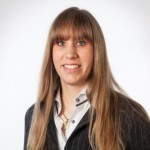 The Dutch Research Council (NWO) has awarded a Veni grant to Giulia Giordano, assistent professor at Delft Center for Systems and Control.
The Dutch Research Council (NWO) has awarded a Veni grant to Giulia Giordano, assistent professor at Delft Center for Systems and Control.
About Giulia’s project: Nonlinear interconnected dynamical systems are ubiquitous. Studying their behaviour is important, but challenging without knowing parameter values. This project develops a new structural approach to study the behaviour of classes of these systems, when only the system structure is known.
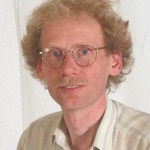 As Hans Zwart turned sixty this year, Felix Schwenninger and Birgit Jacob are organising a symposium at the UPark Hotel on the campus of the University of Twente from Friday 25 of October to Saturday 26 October. Hereby we cordially like to invite you, all his colleagues and friends, to the symposium. The program starts on Friday (25 Oct) morning, 9.00, and ends on Saturday (26 Oct) at 13.00. On Friday evening there will be a festive dinner starting at 18.30.
As Hans Zwart turned sixty this year, Felix Schwenninger and Birgit Jacob are organising a symposium at the UPark Hotel on the campus of the University of Twente from Friday 25 of October to Saturday 26 October. Hereby we cordially like to invite you, all his colleagues and friends, to the symposium. The program starts on Friday (25 Oct) morning, 9.00, and ends on Saturday (26 Oct) at 13.00. On Friday evening there will be a festive dinner starting at 18.30.
Location: UParkhotel on campus of the University of Twente De Veldmaat 8 | 7522 NM Enschede | The Netherlands
There is no registration fee. However, please register for the event by October 10, 2019, on the website of the symposium, which can be found here: https://www.utwente.nl/en/eemcs/sacs/research/symposiumzwart/registration-form/
If you want to share (older or more recent) pictures, stories, etc. at the event, please feel free to contact us.
With best regards,
Birgit Jacob & Felix Schwenninger
bjacob@uni-wuppertal.de
f.l.schwenninger@utwente.nl
The Organizing Committee has the pleasure of inviting you to participate in Energy-Open 2019 workshop, which will be held on November 7-8, 2019, at the University of Groningen; continuing on previous editions held at UTwente and TUEindhoven.
There is no registration fee, however, due to a limited capacity it is necessary to register (first come – first served) via the link
https://www.eventbrite.com/e/energy-open-2019-tickets-70423623955 before October 14.
There is as well the possibility for contributed talks (25 minutes each) and poster presentations, with abstracts to be submitted via the same link.
Scope: The workshop aims to bring together researchers working on new concepts and solutions supporting the energy transition. Topics of interest include, but are not limited to: Decentralized energy management, Mathematical models in power systems, Control of storage in smart grids, Optimization and control algorithms for power grids, Power quality in distribution grids, Prediction algorithms of renewable generation, Legislation for energy transition, and User behavior.
Program: The workshop will be single track and will feature plenary presentations, contributed talks and/or poster sessions.
The keynote speakers are:
Ioannis Lestas, University of Cambridge, UK
Maria Prandini, Politecnico di Milano, Italy
Johannes Schiffer, Brandenburg University of Technology, Germany
John Simpson-Porco, University of Waterloo, Canada
George Weiss, Tel Aviv University, Israel
Bert Zwart, CWI and TU Eindhoven, Netherlands
Organizing committee: Claudio De Persis, Stephan Trenn, Kanat Camlibel, Nima Monshizadeh, Ashish Cherukuri, Arjan van der Schaft * Inquiries can be addressed to energyopen19@rug.nl
The Organizing Committee has the pleasure to invite you to participate in the 3rd IFAC Workshop on Linear Parameter-Varying Systems (LPVS’19) to be held in Eindhoven, The Netherlands, November 4-6, 2019. The workshop aims at attracting researchers interested in the field of Linear Parameter-Varying systems and their applications in engineering problems, as well as experts interested in discussing new trends, exchange new ideas, establish fruitful contacts, and promote interactions among relevant fields of interest.
PROGRAM AND PLENARY SPEAKERS: Please visit the conference website for the list of plenary speakers and the workshop program: http://lpvs2019.tue.nl
REGISTRATION: Normal registration is still possible until Oct. 4, 2019. More information through:https://lpvs2019.tue.nl/registration-information/
Delft University of Technology
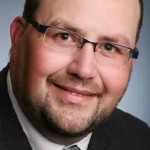 Name: Markus Brühl
Name: Markus Brühl
Starting date: 01-05-2019
Function: Postdoc
Email: m.bruehl@tudelft.nl
Group: DCSC
Supervisor: dr. S. Wahls
I’m Markus Brühl from Germany, and I started as Postdoc in the group of Sander Wahls. I have studied Civil Engineering at TU Braunschweig, Germany, with specialisation in Coastal Engineering. After that, I have done my doctoral thesis at the same university on the implementation and application of the KdV-based nonlinear Fourier transform for the analysis of coastal waves in shallow water. After some years of postdoc in Coastal Engineering and Fluid Mechanics at different institutes at the universities in Braunschweig and Hannover, I have decided to continue my research on nonlinear Fourier transform on water waves at DCSC at TU Delft.
Within the next two years I will, together with Sander and his group, extend the application of NLFT from 2D analyses in shallow water to 2D and 3D waves in shallow and deep water. The term ‘waves’ includes all kinds of coastal and ocean waves such as wind-generated waves, bores and tsunamis due to earhquakes or landslides, and the wave transformations at the coast. The group here has a large expertise on the theoretical and numerical background of NLFT, and I have experience in coastal engineering, water waves and NLFT for shallow water. Bringing together this knowledge will significantly bring forward the nonlinear analysis of free-surface water waves. Furthermore, I bring a project from Germany that deals with the nonlinear decomposition and parameterisation of 3D ship-induced wave fields. Therefore, I will also apply the NLFT to waves that are generated by moving objects in water. But I’m also open for any additional possible applications for the NLFT that I have not considered yet, so I’m open for your suggestions.”
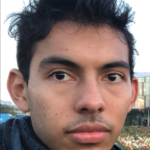 Name: Carlos Andrés Devia
Name: Carlos Andrés Devia
Starting date: 20-05-2019
Function: PhD
Email: c.a.deviapinzon@tudelft.nl
Group: DCSC
Supervisor: dr. G. Giordano
My name is Carlos Andrés Devia, I come from Bogotá-Colombia. I am an electronic engineer and mathematician with a masters degree in electronic engineering from Pontificia Universidad Javeriana. My research interests so far have been focused on control theory and in particular nonlinear model predictive control, but I am also fond of geometric control, differential geometry, and analysis of nonlinear systems. At TU Delft I will start my PhD working with Prof. Giulia Giordano on the structural analysis dynamical systems, aimed at looking for parameter-independent properties.
In my free time, I like to travel and visit new places. I also like to paint and read fiction novels in Spanish and French (my favorite book is 100 años de soledad by Gabriel García Márquez).
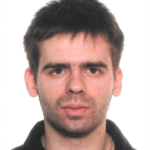 Name: Movses Gasparyan
Name: Movses Gasparyan
Starting date: 01-07-2019
Function: PhD
Email: m.gasparyan@tudelft.nl
Group: DCSC
My name is Gasparyan Movses. I studied at MIPT (Moscow Insitute of Physics and Technology) and I have the master of science degree in applied mathematics and physics. My master thesis was related to modeling gas in 3D space using unstructured grids by solving Boltzmann kinetic equation.
I also have a little more than 2.5 years of experience as C++, CUDA programmer:
1. I worked in Informika with modeling biological neural networks,
2. I worked in Adalisk with geometric algorithms: building and using of AABB-tree on CPU and GPU, creating a cutter track on GPU for milling a tooth crown, implemented algorithm for reconstruction a voxel object from projections on GPU.”
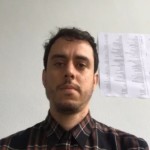 Name: Luigi de Araujo Passos
Name: Luigi de Araujo Passos
Starting date: 01-07-2019
Function: Postdoc
Email: l.a.dearaujopassos@tudelft.nl
Group: DCSC
Hi, my name is Luigi Antonio. I am Brazilian and I came up to the TU Delft for working as Postdoctoral Researcher at the DCSC. I am PhD in Mechanical Engineering and I am going to work on the modelling and simulation of HVAC systems for The Green Village, within the framework of the CONVERGE project. My professional background was built on the thermal sciences area, which includes some studies with regard of the transient simulation and optimization of water heating systems, advanced power cycles, supercritical heat transfer fluids, heat exchangers, solar collectors and thermal energy storage systems. As follow-up, I’m highly motivated to gain knowledge in modern control theory, more specifically, controlling of thermal systems by means of machine learning techniques.
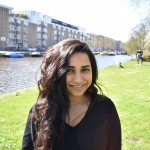 Name: Padmaja Kulkarni
Name: Padmaja Kulkarni
Starting date: 01-08-2019
Function:PhD
Group: CoR
Supervisor: dr. ing. J. Kober
I am Padmaja, and I will start my Ph.D. in TU Delft from 1st August on the topic ‘Force-interaction and bi-manual control.’ This topic aims to use reinforcement learning (learning from experience) to facilitate manipulation of deformable objects with a dual-arm robot. Prof. dr. Robert Babuska and Dr.-Ing. Jens Kober will be Ph.D. supervisors.
After bachelors in Mechanical Engineering from India, I finished my masters in Autonomous Systems from Hochschule Bonn-Rhine-Sieg, Germany. In my master’s thesis, I developed a composable control architecture for Teleoperation control of a dual-arm manipulator based on a hybrid dynamics solver. Simultaneously, I enjoyed being part of the RoboCup industrial league.
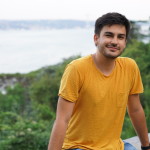 Name: Mert Imre
Name: Mert Imre
Starting date: 01-08-2019
Function: PhD
Group: CoR
Supervisor: dr. ing. Jens Kober
I have received my BSc and MSc degrees from Bogazici Unversity, Turkey. I was an active member of Cognition, Learning and Robotics group from January 2017 on. My PhD will have a focus on object manipulation learning on robots. More specifically, our focus will be to discover the constraints and criteria humans take into account or the strategies they employ while manipulating different types of objects from few demonstrations. To increase the robot’s efficiency and success, the robot should also be able to learn from its own experience.
Besides robotics, in my spare time I like to enjoy a small walk, having a beer or coffee with friends. I like following some team sports and like to play football or basketball occasionally. I am pretty curious about trying new food and open to any sort of suggestions.
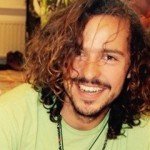 Name: Nick Kluft
Name: Nick Kluft
Starting date: 02-09-2019
Function: Postdoc
Group: CoR
Supervisor: dr. R. Happee
My name is Nick Kluft, and from September 2nd I will be working as a postdoc in the cognitive robotics department under the supervision of dr. Riender Happee. I studied human kinetic technology in the Hague and received an MSc at the Vrije Universiteit in Amsterdam at the department of human movement sciences, where I am also about to obtain my Ph.D. During my Ph.D., I investigated whether older adults behave as they should (given their physical abilities), by studying the perception and biomechanics during walking, tripping, stumbling, and falling. I am still (part-time) involved in a project at the Vrije Universiteit in Amsterdam, where I am investigating to what extent humans, humanoids, and exoskeletons can walk on ascending and descending slopes, as well as lateral inclinations.
For me, a perfect day-off will contain a few ingredients: having breakfast with my girlfriend, playing the guitar for a long while, reading a few pages, playing some field hockey, and grabbing a concert together with friends (insert drinking espresso at the commas).
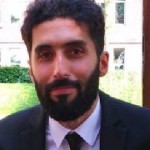 Name: Mojtaba Mirakhorlo
Name: Mojtaba Mirakhorlo
Starting date: 02-09-2019
Function: Postdoc
Group: CoR
Supervisor: dr. R. Happee.
I’m Mojtaba Mirakhorlo. I have just started a postdoc on biomechanics of seating in automated cars with supervision of with Riender Happee here at CoR. The project involves neuromuscular modeling to predict body motion and comfort and also vehicle experiments to study postural dynamics.
I’m from Iran and I have moved to the Netherlands around 5 years ago to do my PhD at VU Amsterdam. My PhD was on the biomechanics and motor control of hand and wrist. After that, I had the chance to work as a postdoc with Frans van der Helm at BME department. During my postdoc, I developed the Delft Shoulder and Elbow musculoskeletal model for fast pitching. Maybe it’s not a bad idea to mention that I like playing Volleyball, Futsal and guitar :D.
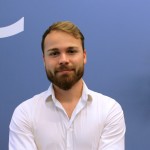
Name: Corrado Pezzato
Starting date: 02-09-2019
Function: PhD
Group: CoR
Supervisor: Dr. Carlos Hernández Corbato
My name is Corrado! I am Italian, but I spent the last two years studying in Delft, where I obtained a MSc degree in Systems and Control. During my studies I specialized in robot control, focusing on adaptive and fault tolerant architectures. My interests lie in research and development of new algorithms which combine fundamental concepts from control theory with recently emerging and promising machine learning techniques and symbolic AI, aiming at obtaining human level adaptability in robotics. To pursue my ambitions, I started my PhD in self-adaptaptive robot architectures under the supervision of Dr. Carlos Hernández Corbato.
I am Italian so it goes without saying that during my free-time I love to cook and experiment new recipes. Besides that, I am a fan of backpacking and during my travels I always look for extreme adventures.
Name: Xiaoshan Bai
Starting date: 01-08-2019
Function: Postdoc
Group: CoR
Supervisor: dr. J. Alonso Mora
I’m Xiaoshan Bai, who has achieved his PhD degree with the Faculty of Science and Engineering, University of Groningen (RUG), The Netherlands. My research interests are ‘multi-robot/vehicle task assignment, vehicle path planning, and logistic scheduling’, which involves the modeling, optimization and optimal decision making. My supervisor during my postdoctoral research is Javier Alonso Mora for conducting the project.
Fleets of autonomous mobile robots can be leveraged to make industrial intralogistics more flexible and more efficient and fleets of automated on-demand vehicles can disrupt urban commerce by providing last-mile deliveries faster and cheaper than what is possible using traditional delivery channels. In this project, we will develop methods that allow to make principled decisions about design parameters of large-scale multi-robot systems, and to control the vehicles in the system, such that the desired trade-off between the fleet composition, operation cost, and system performance is achieved.
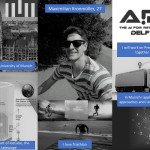 Name: Maximillian Kronmuller
Name: Maximillian Kronmuller
Starting date: 02-09-2019
Function: PhD
Group: CoR
Supervisor: dr. J. Alsonso Mora
Eindhoven University of Technology
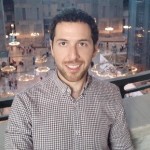 Name: Carlos Robles Rodriguez
Name: Carlos Robles Rodriguez
Starting date: 1 August 2019
Function: Post Doc
Email: C.E.Robles.rodriguez@tue. nl
Group: Control Systems
Supervisor: Leyla Ozkan
Project: INSPEC
My name is Carlos Robles Rodriguez from Mexico. I obtained my BSc (2009) and MSc (2013) degrees in Chemical Engineering from the University of Guadalajara in Mexico. I did my PhD in France in the Toulouse Biotechnology Institute (INSA 2016) where my dissertation was about modeling and control of fermentation processes. After that, I moved to Belgium to make a Postdoc at the Catholic University of Louvain (Belgium) where I worked in Wind Energy prediction and wastewater treatment management. Then, I came to the Netherlands for another postdoc at TU Delft as part of DCSC where I worked on model reduction of biochemical systems. Now, I have joined the Control Systems Group of TU/e to work as a postdoc in dynamic modeling based control for the industrial chemical processes. After work, I enjoy running, singing, dancing, reading and learning new languages.
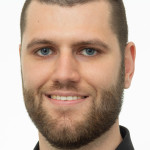 Name: (Ricky) R.J.R. van Kampen
Name: (Ricky) R.J.R. van Kampen
Starting date: 15-04-2019
Function: PhD
Email: R.J.R.v.Kampen@tue.nl
Group: Control Systems Technology
Supervisor: prof.dr. M.R. de Baar
Project: Identification methods for weak (distributed) nonlinearities in partial differential equations for fusion plasmas
My name is Ricky and I started working on a PhD project at DIFFER (the Dutch Institute for Fundamental Energy Research).
At Differ I am in the Energy Systems and Control research group which focuses on analysis, identification, and control of different systems within energy research.
For example, in controlled nuclear fusion the aim is to produce a significant amount of energy by fusion of hydrogen isotopes. The efficiency of the reactor depends on the thermal transport, which are typically governed by sets of coupled partial differential equations (PDEs).
Hence, for improving both the core plasma and reducing the heat exhaust these coupled PDEs play a crucial role and need to be modeled, identified, and controlled.
My (main) goal within this research group is to develop system identification methods for coupled partial differential equations and the identification of weak (distributed) nonlinearities describing the thermal transport.
To carry out this research I am also allied to the CST (Control Systems Technology group) of the Mechanical Engineering department at Eindhoven University of Technology.
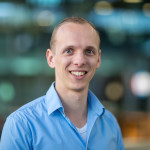 Name: Ruben Merks
Name: Ruben Merks
Starting date: 01-08-2019
Function: Postdoc
Email: r.w.h.merks@tue.nl
Group: Dynamics and Control
Hello everyone, my name is Ruben Merks and I will be doing a postdoc in the Dynamics and Control group at Eindhoven University for technology, which is for 50% geared towards teaching innovation and 50% towards research.
During my PhD project (at the Control Systems group of the same university) I mainly focused on controlling thermal aspects with the aim of minimizing deformations of components in wafer scanners. For this type of application, my research has mainly been focused on the placement of actuators and sensors for control and model order reduction for control.
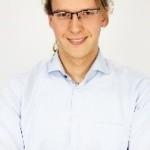 Name: J.J. Verbakel
Name: J.J. Verbakel
Starting date: 01-09-2019
Function:PhD student
Email: j.j.verbakel@tue.nl
Group: CST
Supervisor: dr. Asia van de Mortel-Fronczak
Project: RWS
My name is Jeroen Verbakel. I graduated for my Master Mechanical engineering here at the TU/e last June. My thesis was on decision making for autonomous vehicles, together with TNO automotive. Since the start of September I am a PhD candidate in the CST group. I will be working for the Rijkswaterstaat project, looking at similarities between different control architectures, to devise a product platform for control architectures.
University of Groningen
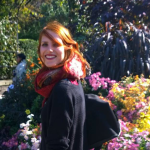 Name: Kathinka Frieswijk
Name: Kathinka Frieswijk
Starting date: 01-09-2019
Function: PhD student
Email: k.frieswijk@rug.nl
Group: Discrete Technology and Production Automation
Supervisor: Prof. dr. Ming Cao
Hello! I am Kathinka, a new PhD student in the Discrete Technology and Production Automation Group, at the University of Groningen. My background is quite multidisciplinary: I received three Bachelor’s degrees, specifically Medicine, Mathematics, and Physics, and I graduated from the University of Groningen with a Master’s in Theoretical Physics. My current research topic is ‘Population Dynamics in Evolutionary Games on Networks’. In my free time, I enjoy bouldering, painting, and drawing the occasional comic.
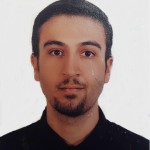 Name: Amirreza Silani
Name: Amirreza Silani
Function: Ph.D. Student
Email: a.silani@rug.nl
Group: Control System Group
Supervisor: Prof. J.M.A. (Jacquelien) Scherpen
Project: Distributed Optimal Frequency Control in Smart Microgrids
Amirreza Silani received the B.Sc., M.Sc. degrees from Isfahan University of Technology, Isfahan, Iran in 2013, Isfahan University of Technology, Isfahan Iran, in 2016, respectively, all in electrical engineering. He is currently working toward the joint Ph.D. degree in control engineering at University of Groningen and Tehran. His research interests include smart grids, distributed optimization, stochastic control, and nonlinear control.
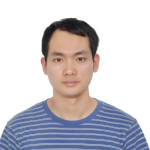 Name: Feng Huang
Name: Feng Huang
Starting date: 06-09-2019
Function: PhD
Email: feng.huang@rug.nl
Group: Discrete Technology and Production Automation
Supervisor: Prof. M. Cao
Project: Reinforcement Learning and Evolutionary Game Theory
Name: Brayan Shali
Starting date: 01-09-2019
Function: PhD student
Email: b.m.shali@rug.nl
Group: Systems, Control and Applied Analysis
Supervisor: Dr. Bart Besselink
Project: Contract-based analysis of large-scale interconnected systems
I am Brayan, a new PhD student in the Bernoulli Institute at the University of Groningen. I was born and raised in Bulgaria, and I received both my BSc and MSc degrees in Applied Mathematics at the University of Groningen. My master’s programme was specialized in Systems and Control and my master’s thesis was about strong structural properties of structured linear systems, supervised by prof. dr. Kanat Camlibel. The goal of my PhD project is to develop a framework for the modular design and analysis of large-scale interconnected systems by explicitly specifying the interaction between components in the form of so-called contracts. I will do this with the help and under the supervision of dr. Bart Besselink.
Eindhoven University of Technology
Candidate: H.P.G.J. (Henrik) Beelen
Group: Control Systems
Thesis: Model Based Temperature and State-of-Charge Estimation for Li-ion Batteries
Promotor: Prof.dr.ir. P.M.J. Van den Hof
Date: 11 September 2019
Location: Atlas building, room 0.710
Time: 16.00 h.
Candidate: R.W.H. (Ruben) Merks
Group: Control Systems
Thesis: Towards Control Relevant System Design and Constrained Order Controller Synthesis
Promotor: Prof. dr. S. Weiland
Date: 25-9-2019
Location: Atlas building, room 0.710
Time: 16.00 h.
Delft University of Technology
Candidate: Reinier Doelman
Group: DCSC
Thesis: Rank-based optimization techniques for estimation problems in optics
Promotor: Prof.dr.ir. M. Verhaegen
Date: 05-9-2019
Location: Aula Senaatszaal, Mekelweg 5
Time: 15.00
University of Groningen
Candidate: Rodolfo Reyes-Baez
Group: Bernoulli Institute for Mathematics, Computer Science and Artificial Intelligence
Thesis: Virtual contraction and passivity based control of nonlinear mechanical systems, Trajectory tracking and group coordination
Promotor: Prof.A.J. van der Schaft and Prof B. Jayawardhana
Date: 13-9-2019
Location: Aula Academy building
Time: 12.45
The next issue of this Newsletter will appear in October 2019.
We encourage the contributors to provide newsworthy information. In principle, we intend to publish any message offered. However, we reserve the right to edit certain parts of a submission.
Please send your contributions to: m.w.otte@tudelft.nl